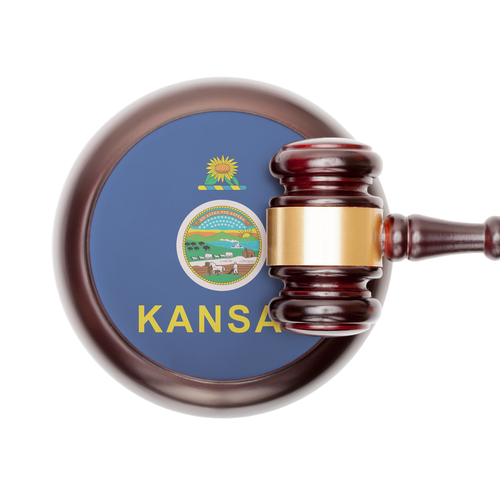Lawyer's copied website material, statements about experience weren't false or misleading, top state court rules

A part-time lawyer didn’t violate a disciplinary rule banning false or misleading communications by posting copied material on her website, along with statements such as “experience counts,” the Kansas Supreme Court has ruled. Image from Shutterstock.
A part-time lawyer didn’t violate a disciplinary rule banning false or misleading communications by posting copied material on her website, along with statements such as “experience counts,” the Kansas Supreme Court ruled Dec. 1.
The Kansas Supreme Court found no ethics violations in connection with the website of Tarishawn D.D. Morton, but it did censure her for false statements or omissions on her admissions applications to the Kansas and Colorado bars.
Morton used material from another lawyer’s website on her website; posted logos from bar associations, although her membership had lapsed; included a Martindale-Hubbell A/V rating logo, although she had not received the rating; and made several statements about “experience,” even though she practiced law only during evenings and weekends, according to findings of fact by a hearing panel.
The copied material summarized caselaw, answered questions about Kansas domestic relations law, and described the criminal trial process.
Morton’s website made these statements about experience:
• “You need an experienced Johnson County, Kansas attorney.”
• “Attorney T. Morton has the experience necessary to determine if you are being treated fairly.”
• Morton is an “experienced legal counsel you can trust.”
Morton’s website also listed her practice areas as “criminal defense” and “personal injury,” and she listed several types of cases within those areas, including “sex crimes” along with “auto accident, motorcycle accidents, wrongful death, serious injuries.”
The Kansas Supreme Court said there was no evidence that Morton’s use of the Martindale-Hubbell logo was intentional, rather than merely inadvertent of negligent. The state supreme court also said the copied material was not misleading, and use of the bar association logos was not a material misrepresentation.
“Second,” the Kansas Supreme Court said, “while an attorney’s assertion of ‘experience’ may be a material misrepresentation in some cases, that is not the case here. Morton’s claims to be ‘experienced legal counsel’ and to ‘ha[ve] the experience necessary to determine if you are being treated fairly’ are not demonstrably false under the record before us.”
Use of copied material could constitute a violation of the ethical ban on dishonesty, fraud, deceit or misrepresentation, but in Morton’s case there, is no evidence that her use of the material was anything more than inadvertent or negligent, the state supreme court said.
The Kansas Supreme Court also found no problem with Morton listing practice areas because she was communicating the type of cases that she was willing to accept.
“Nothing in the record shows that Morton claimed to be a specialist in a particular field of law, or that she claimed to have experience handling particular types of cases,” the state supreme court said. “She simply listed types of cases she would accept.”
The censure was for Morton’s failure to disclose a job from which she was fired in her 2016 application for admission to the Kansas bar and for falsely stating that she voluntarily quit that job in her 2019 application to the Colorado bar. She also should have updated her pending Colorado application to disclose the pending disciplinary complaint in Kansas, according to the state supreme court.
Hat tip to the Legal Profession Blog and WIBW.
Morton didn’t immediately respond to a request for comment left by voicemail and sent via her website contact form.



